Hello guys. I'm so happy getting in touch with you all once again. I hope you all had a wonderful weekend. I have not been able to stay consistent for some few days due to a program we had this week.
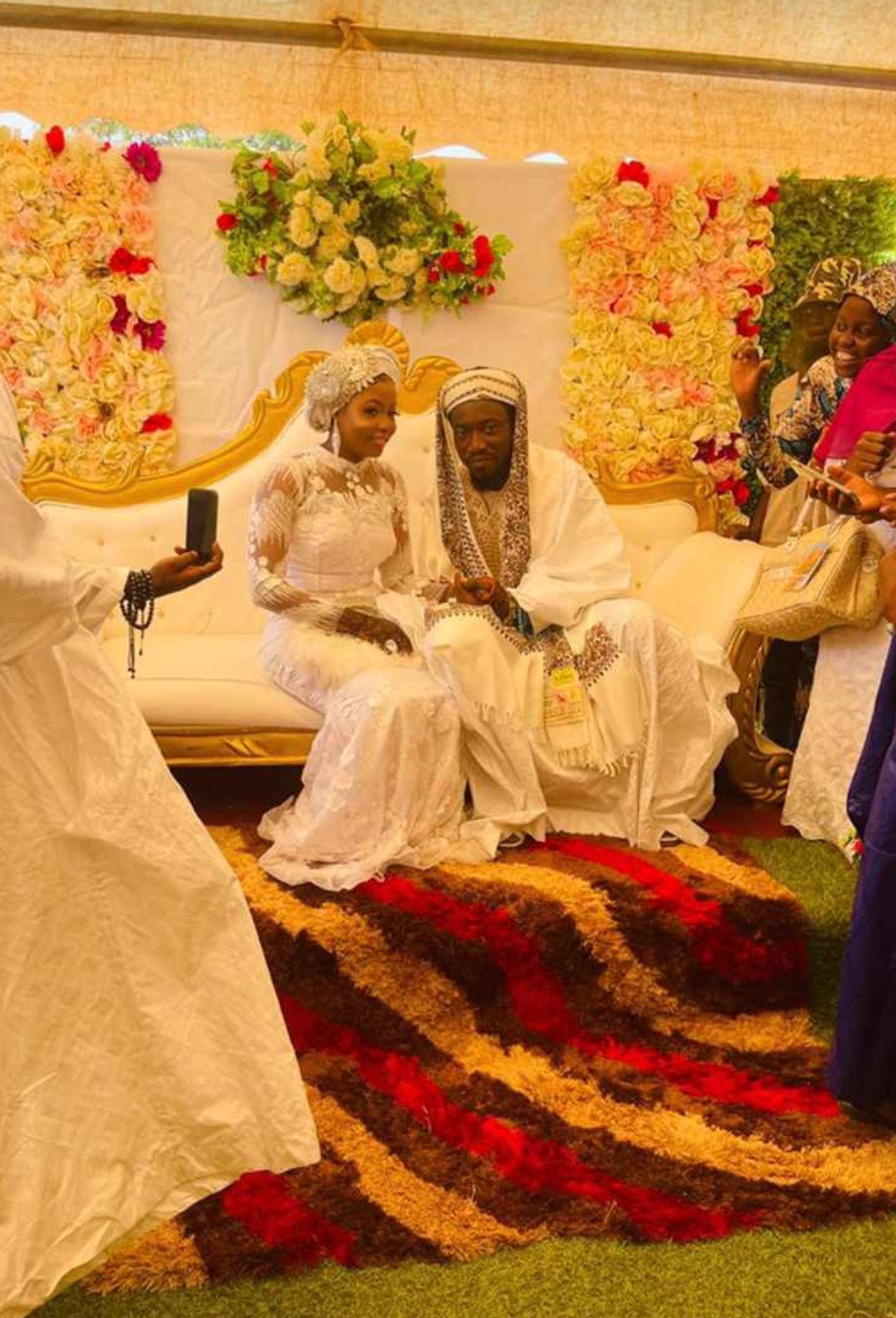
My elder brother got married this week. I am sure a lot of people have always wanted a chance to witness how a wedding ceremony is done amongst the people of Northern Ghana, particularly the muslims in Northern Ghana.
Well, I have got you covered. Today, my piece is going to describe into detail how the people of Northern Ghana carry out a wedding ceremony.
Like many other cultures, before the ceremony itself is the activity of seeking for the woman's hand in marriage. This is done after the man introduces her to his parents. The man's father or uncle then sends an entourage of elders to the woman's home with a purpose of seeking her hand in marriage. The consent of the woman is sought. Thereafter, further deliberations are done with respect to how much dowry the man has to pay. Aside the dowry, other demands are made, such as cloths, undergarments, cooking utensils, and basically any thing that will make the woman comfortable. These items are called "Asadaachi" in our local dialect. After all the negotiations are done, the elders take the information back to the man's family and they begin to prepare for the wedding ceremony.
The wedding ceremony begins on Saturday and ends on Monday.
THE BEGINNING
On Saturday, the principal activity undertaken is called "Zabla Labbu" in our local dialect. This has to do with smearing a type of dye called "Zabla" on the bride's body. The intention of this act is that it traditionally beautifies the bride's body. When applied on the skin, it generally glows and becomes much more beautiful than even the synthetic makeups we have now. It is immediately washed away when applied because when left for a long time, it becomes very reddish in color. Meaning, when left on the bride's body for long, she globally becomes reddish-brown in color.
During the evening of Saturday, the men gather to make merry whilst the women set up cooking pots and start making stews for Sunday's food.
The night is ideally characterized by the singing and dancing the men do. Typical Dagombas use the locally made Dagomba drums and perform dances such as "Nag' Biegu" , " Tora" , " Jara" , "Simpa" and "Baamaaya". Other people prefer Islamic Songs of Eulogy to Allah and His Messenger (SAW) being sung; also accompanied by drums which are made by the Hausa ethnic group. Obviously, the singing and dancing has to be accompanied by something to soothen the throats of singers and/or dancers. A local tea such as "Ataya" is prepared. Other drinks such as "Sobolo" and "Zimkom" are also made available.
THE MIDDLE
On Sunday, the main activities come off. The day begins with the families of both the groom and bride converging at a chosen Mosque. The program starts with the Imam of the Mosque taking charge of affairs. He asks the family of the bride whether they agree to give their daughter out or not. He asks the question three times and everyone around bears witness to that. If the answer to the question is "YES in all three instances, then he proceeds to the next steps. If the answer is "NO in one particular instance, then the wedding cannot hold. In our case, the answer was "YES in all instances.
The next clarification to be done is to ask how much the bride's family charged as dowry and how much the groom's family paid, whether they are indebted to the bride's family or not. With everyone present as a witness, both parties answer and all clarifications done. During the payment of the bride price as well, there had to be witnesses. So those witnesses are called upon and asked how things transpired between both families. This is basically the most important part of the entire ceremony.
Next during the program is to get a well renowned scholar who will advice both the groom and bride on what marriage is and on how to take good care of each other. Afterwards, a prayer is said to bless the marriage and the program comes to an end.
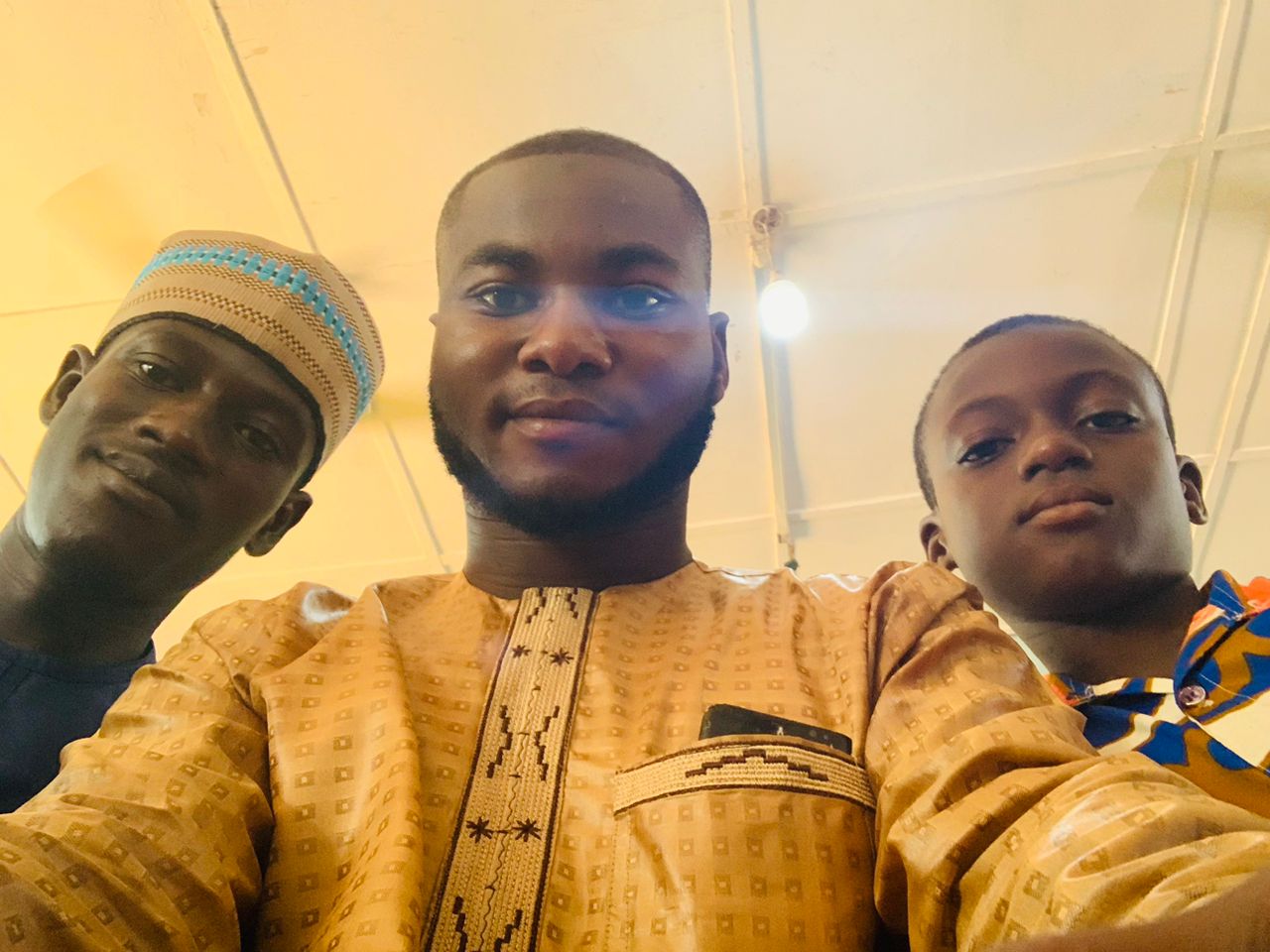
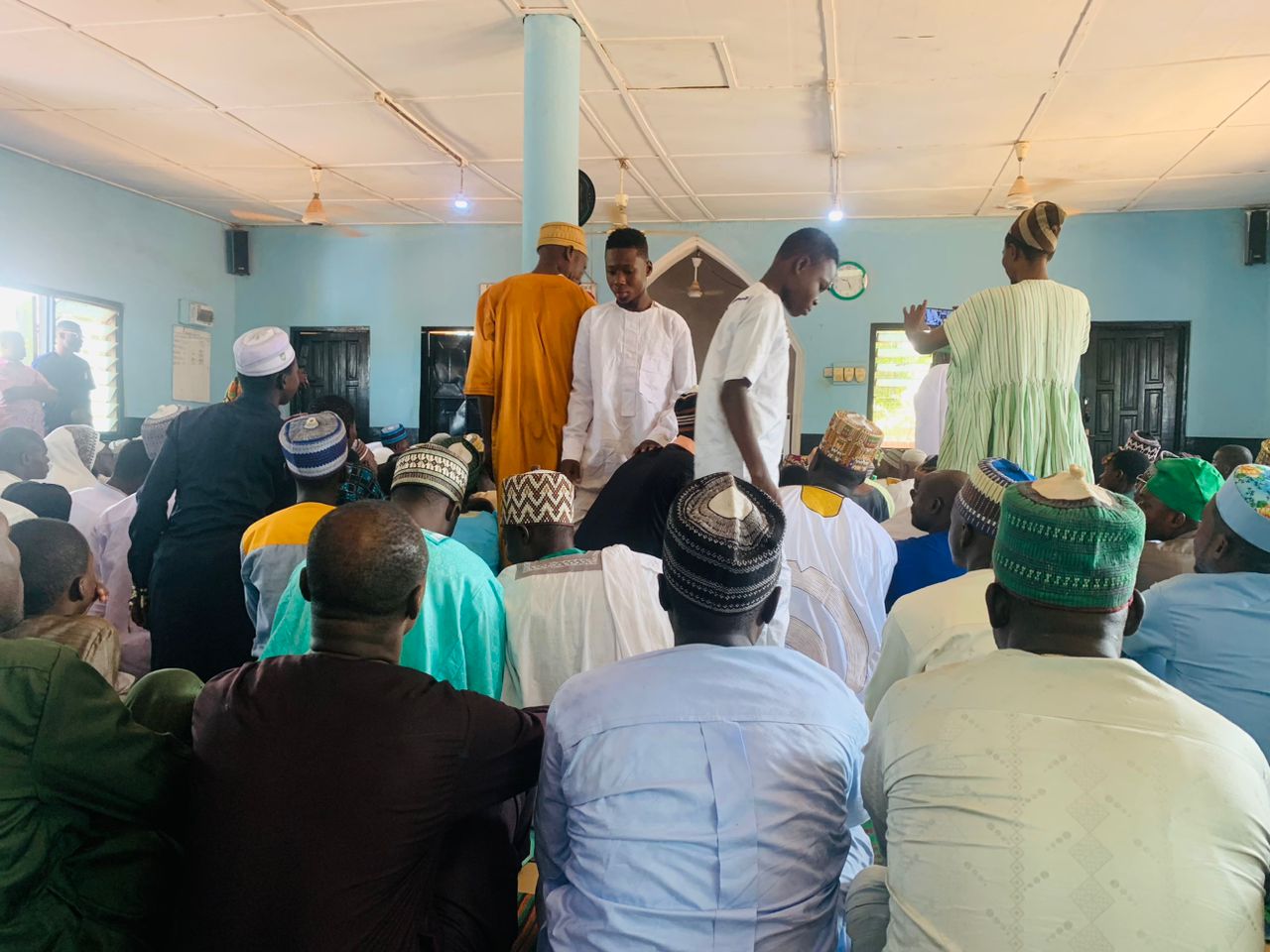
AT THE MOSQUE
The rest of the day continues at home where people eat, chat and make merry. In the evening of Sunday again, another singing and dancing session is organized, this time graced with the presence of both the groom and the bride. They both dance together happily.
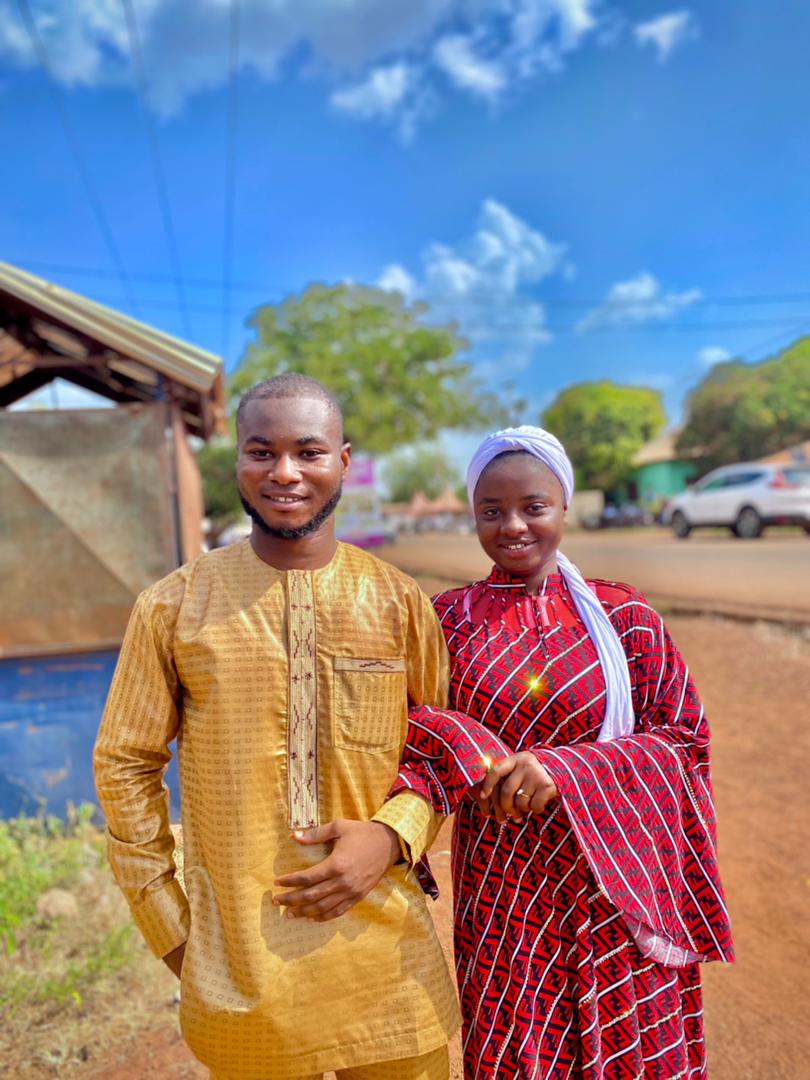
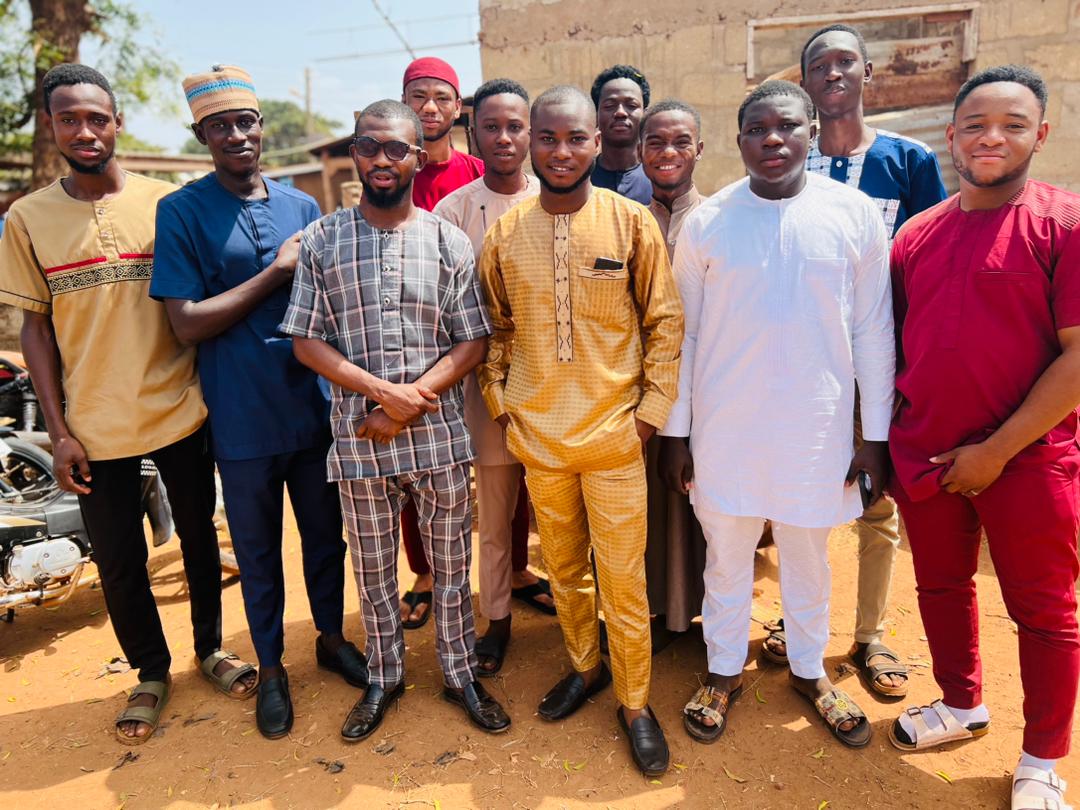
ENJOYING THE MOMENT
THE FINALE
The last part and the last day of the ceremony is known as "Duuyibu". The main activity is to send the bride to her husband's home. It actually starts in the evening when the woman is made to sleep in the same room with the groom's mother. The following day, that's on Monday, the bride is made to do the chores at home to certify that she can really take care of her home. The groom and his friends visit the bride's family to thank them for allowing them marry into their wonderful family. The bride's family offer a few pieces of advice to the groom and they come back home. The bride's Aunt also delivers some advice to the bride as well.
Here in our part of the world, a Hausa culture has been introduced on this day. Later in the day, a bowl with water is given to the bride. She takes it round to find her husband amongst a group of males. When she finds him, he drinks the water in it and then places some money into the bowl.
This brings the whole wedding ceremony to an end, and the two are now husband and wive.
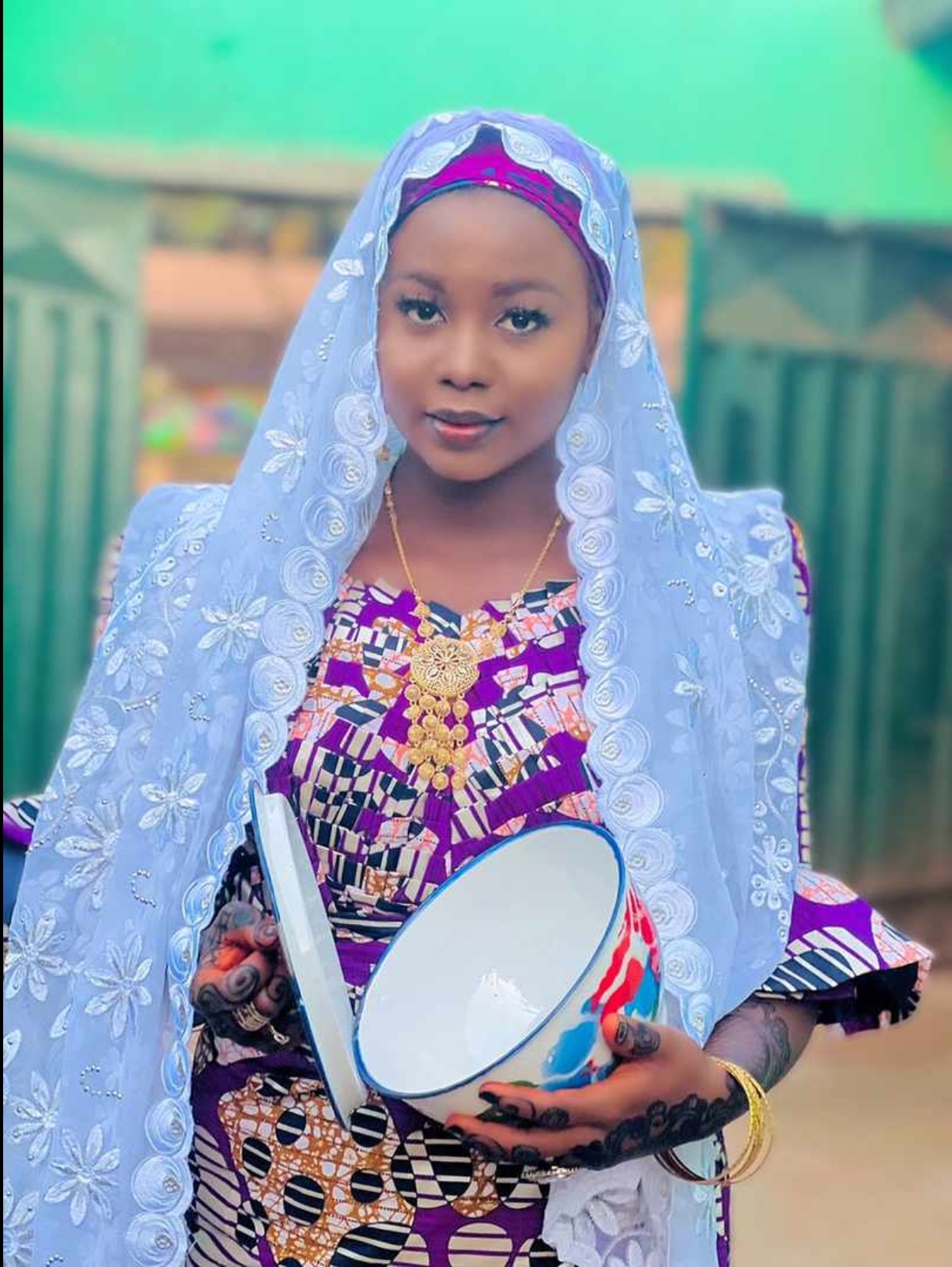
OUR BRIDE
Thank you so so much for reading.
Your Friend.......Abdul-Rashid.
I am really amazed by the unique wedding traditions of every nation and I personally find it very interesting to read about them. Thank you for this exposition! 😊
Hi @arashid003, it will be great and really nice if you show more engagement by interacting with other users under their posts in this amazing community. This will help you in many ways to develop on the platform.
I will certainly do that.
Thank you very much
Congratulations @arashid003! You have completed the following achievement on the Hive blockchain and have been rewarded with new badge(s):
Your next target is to reach 400 upvotes.
You can view your badges on your board and compare yourself to others in the Ranking
If you no longer want to receive notifications, reply to this comment with the word
STOPCheck out the last post from @hivebuzz:
Support the HiveBuzz project. Vote for our proposal!
Thanks so so much. I really appreciate your support
You're welcome @arashid003
Support us back and vote for our witness.
You will get one more badge and may get bigger upvotes from us when we notify you.
Alright Sir
I will do that
Thank you for sharing this @arashid003.Wow!the bride is so beautiful. I know the bride and the groom are excited for the wedding ceremony, I can relate. Love your pictures 😊
Thank you so so much @simplechalyns for the love shown. I really appreciate it.
It's my pleasure sir @arashid003.I'm looking forward for your next blog.
The culture and the whole process seems super interesting to me, from looking for the hand of the woman in marriage and the duration of the 3-day ceremony. Friend @arashid003, everything you do is amazing and what a marriage means to you. Thank you for sharing all this important celebration. Greetings and blessings.
Thank you so so much @floreudys. It's such an amazing culture we have here. I hope oneday you come experience it yourself.